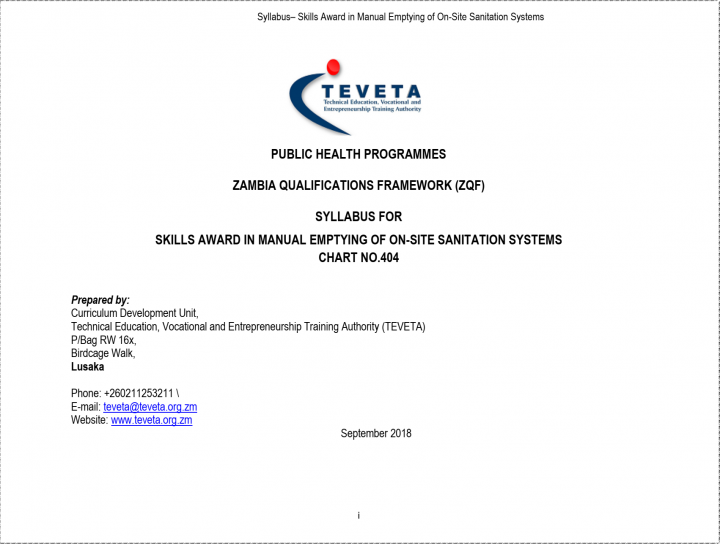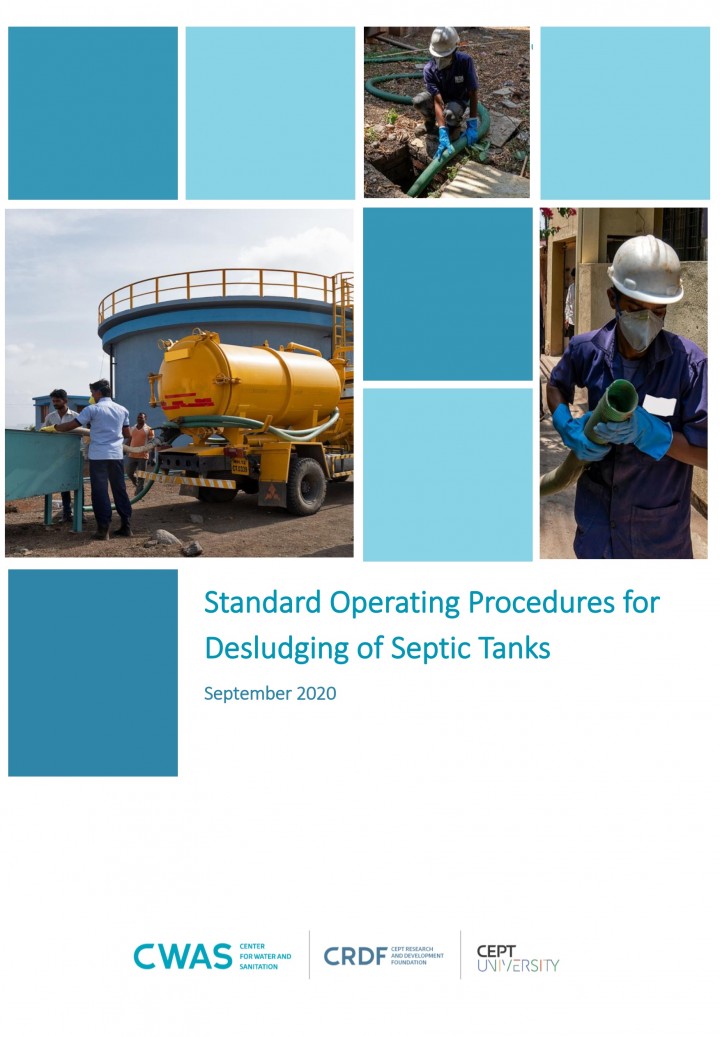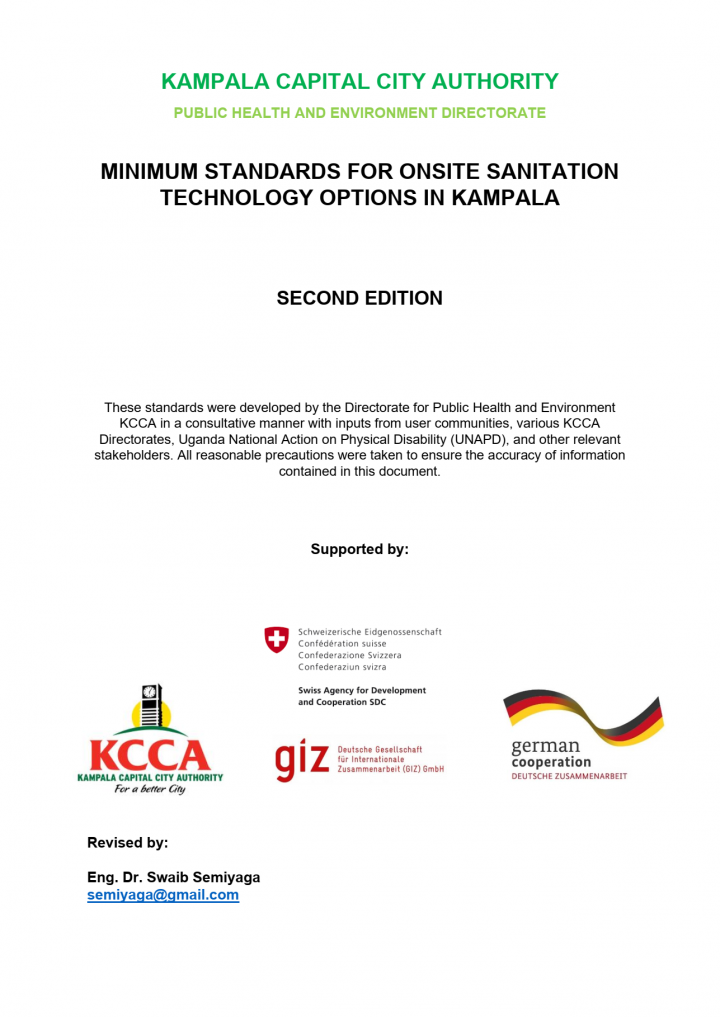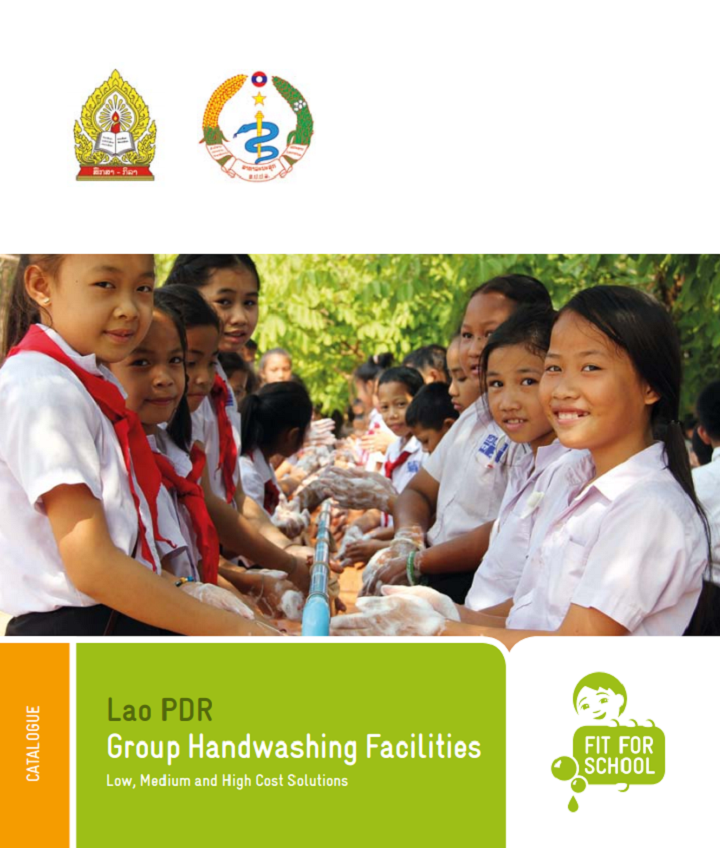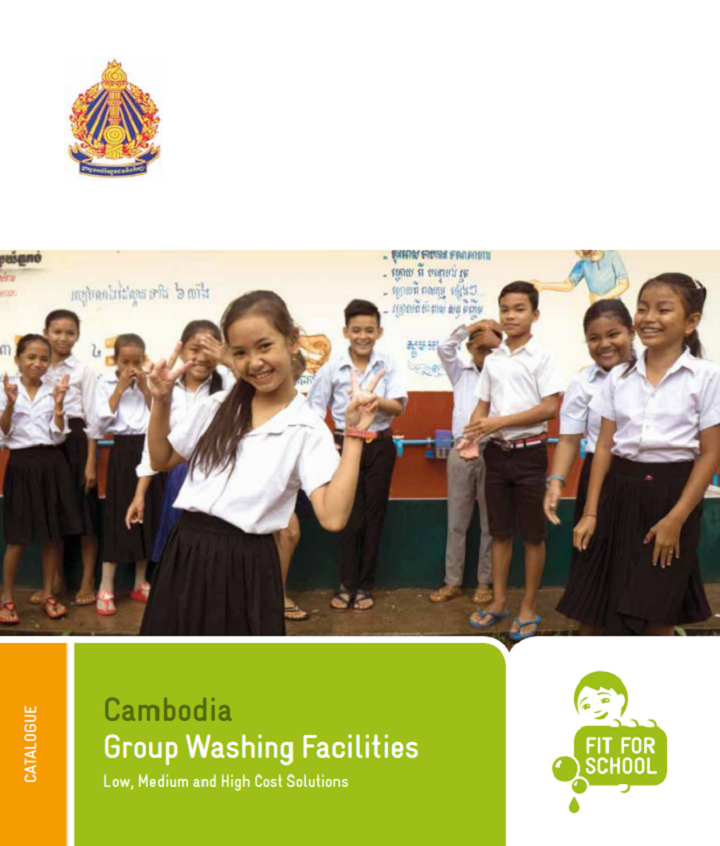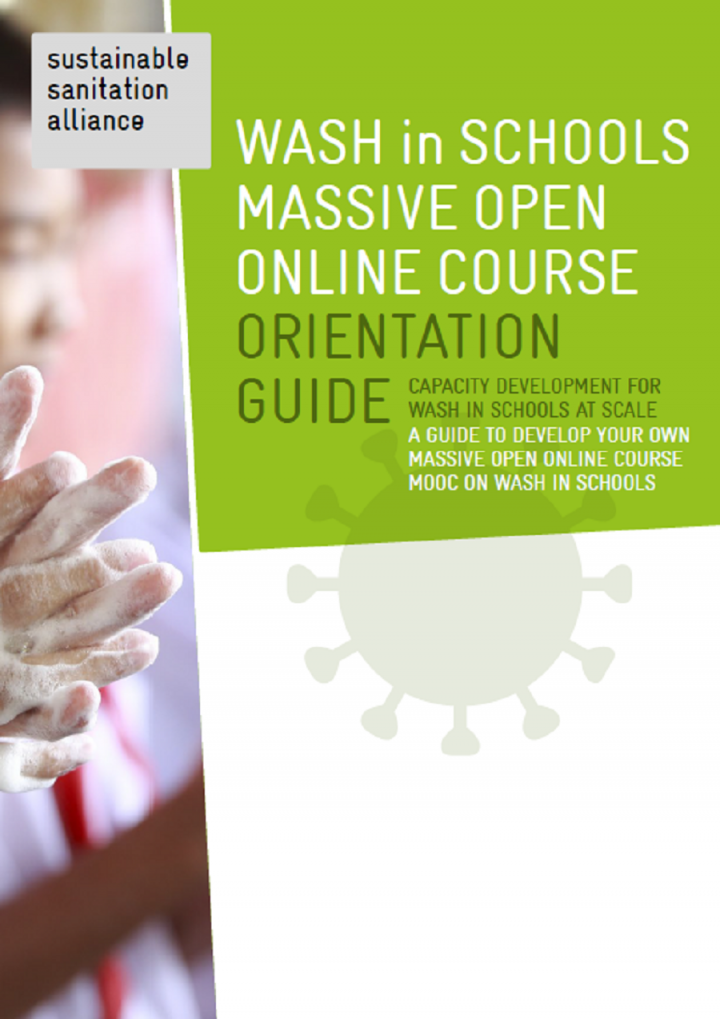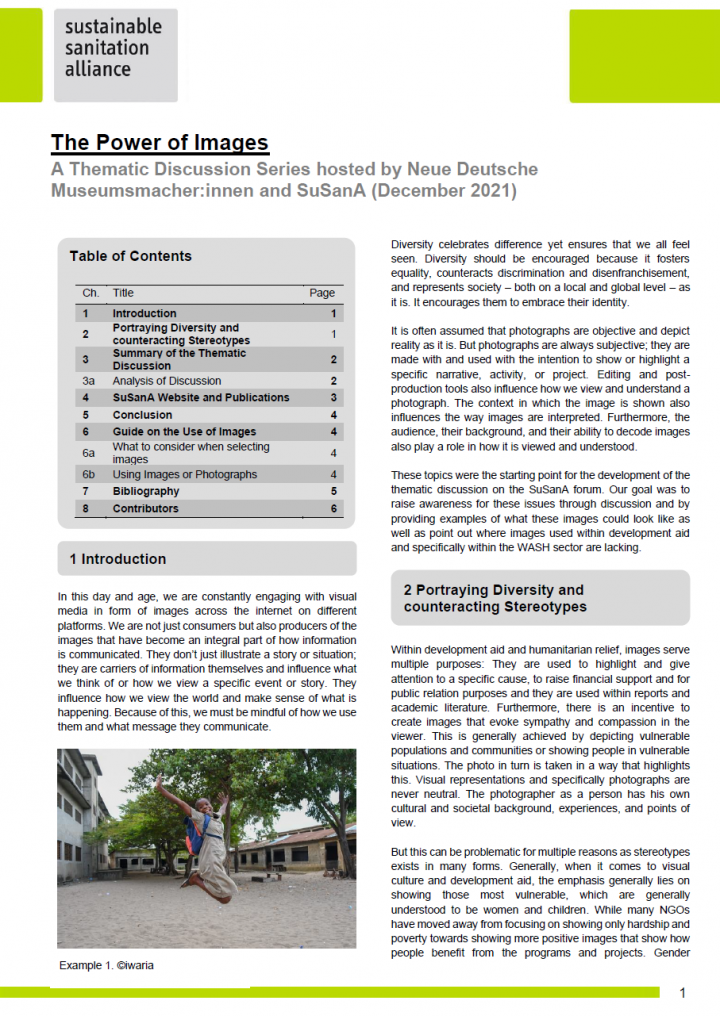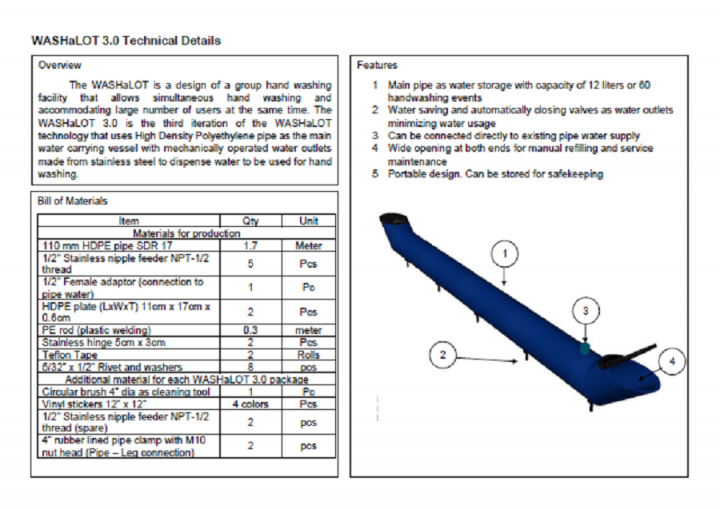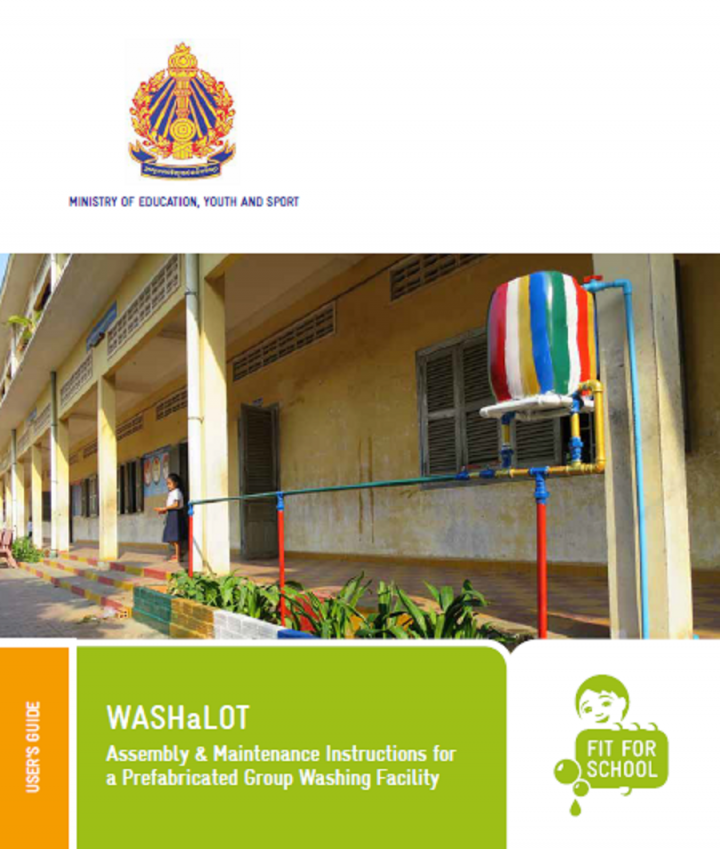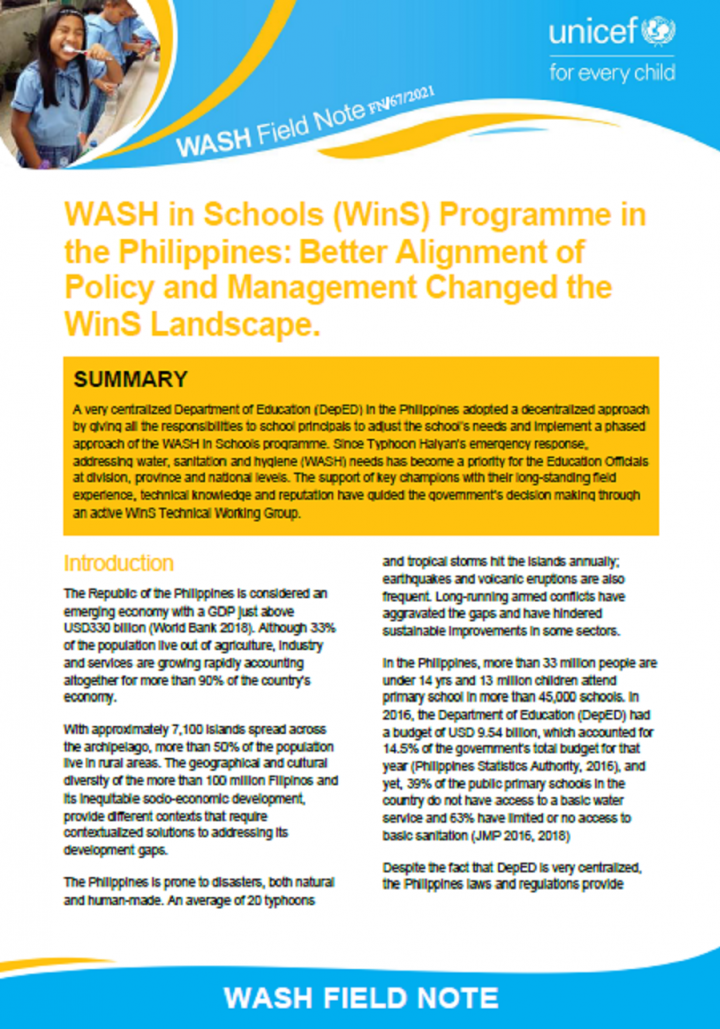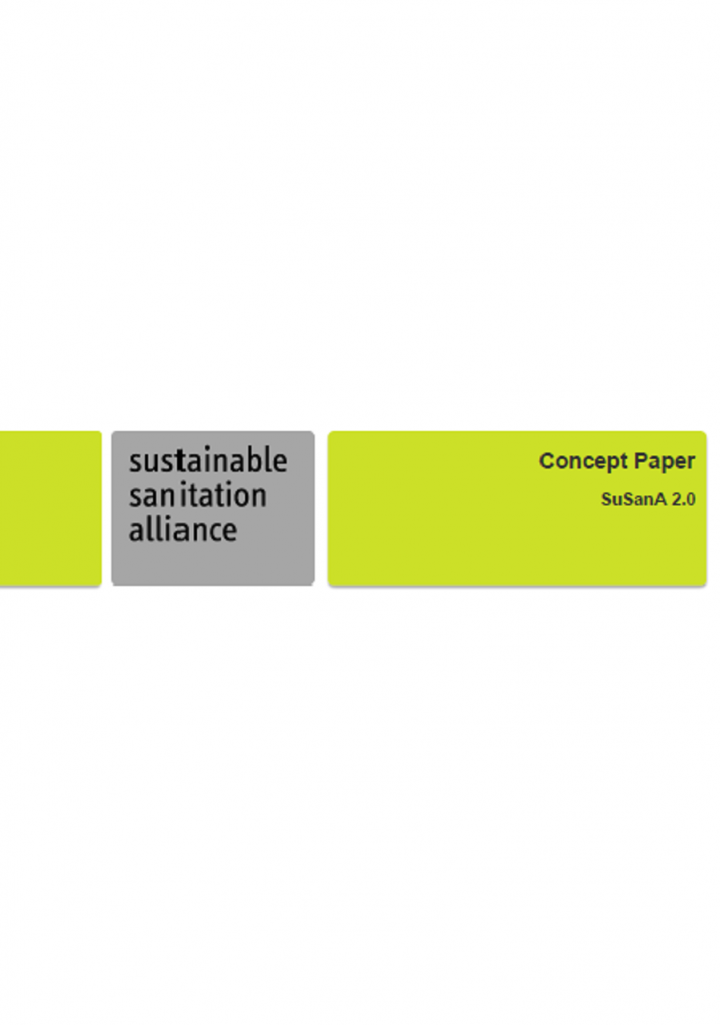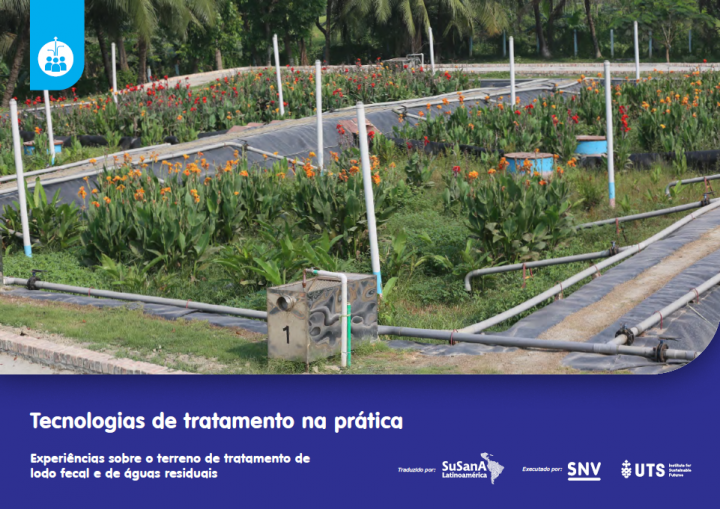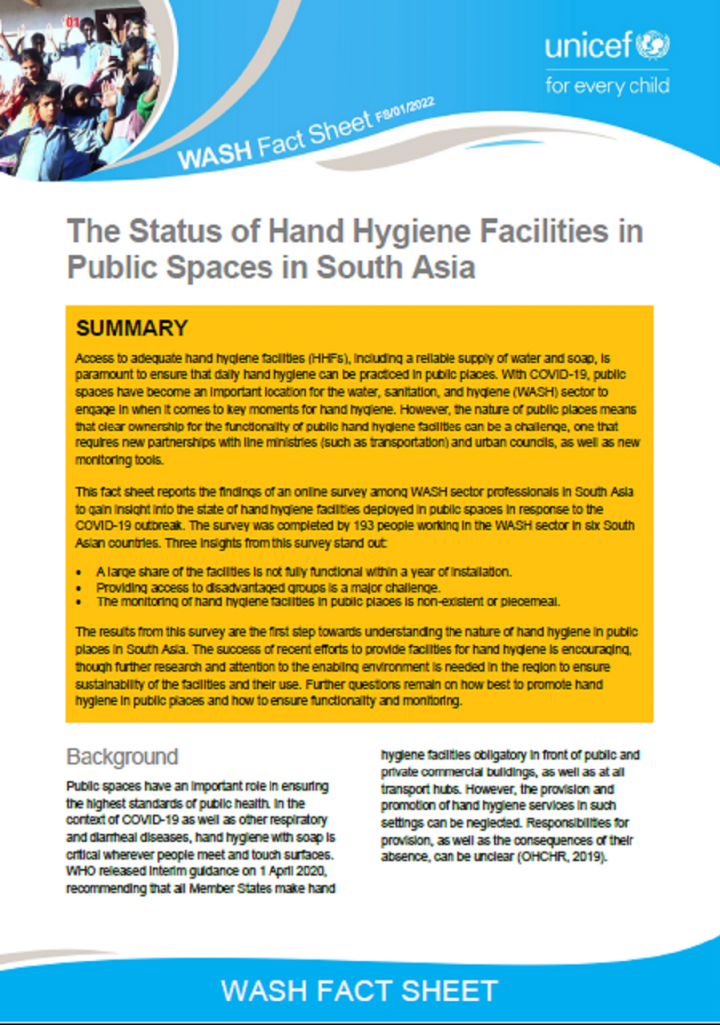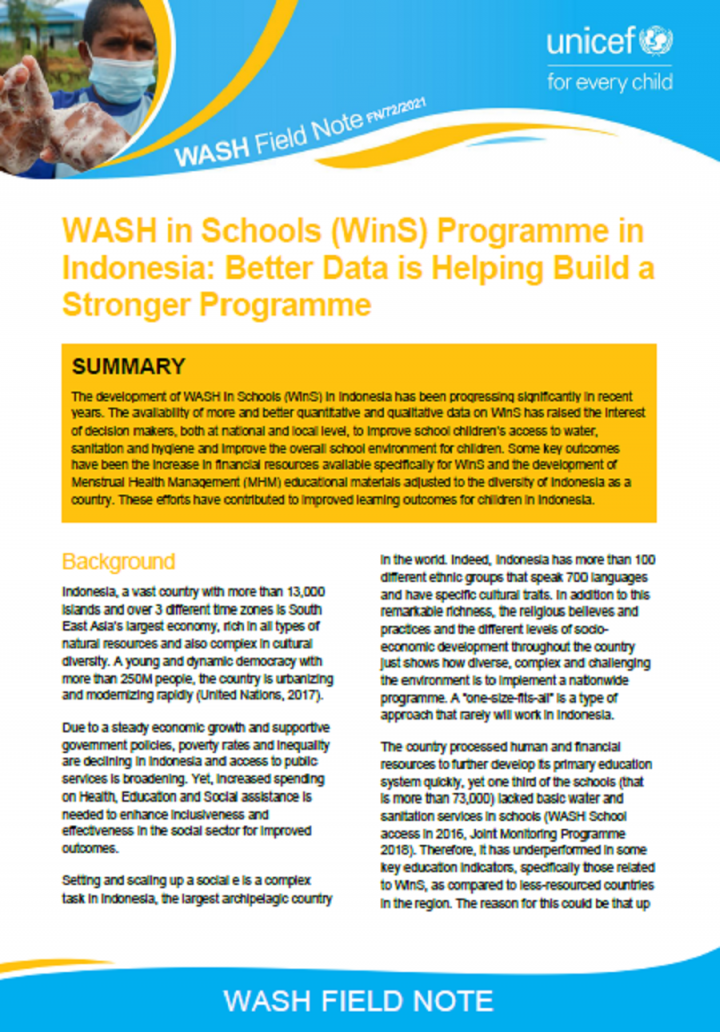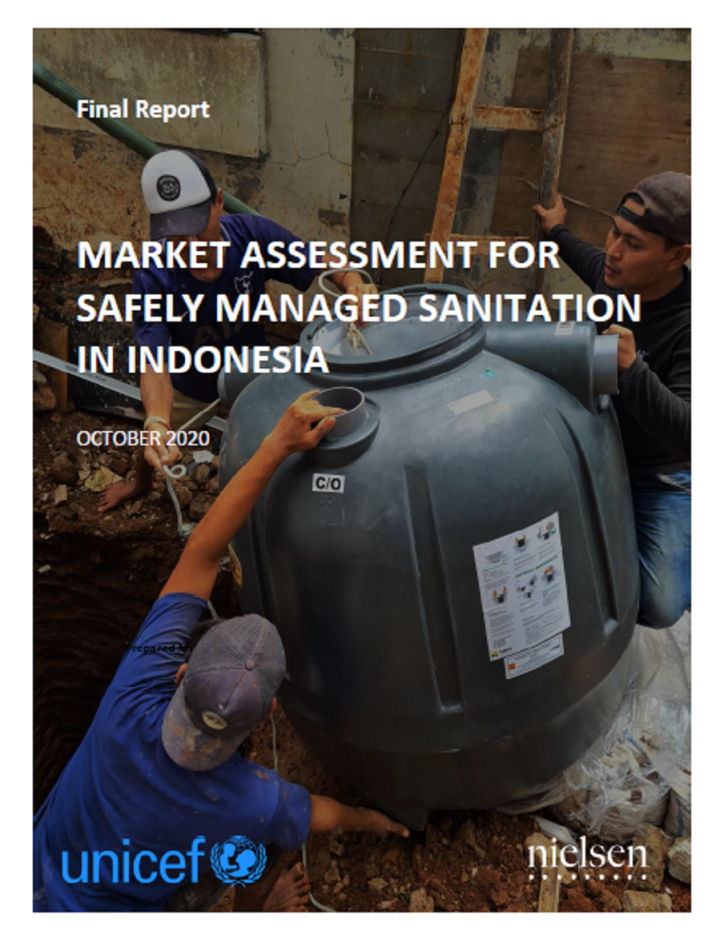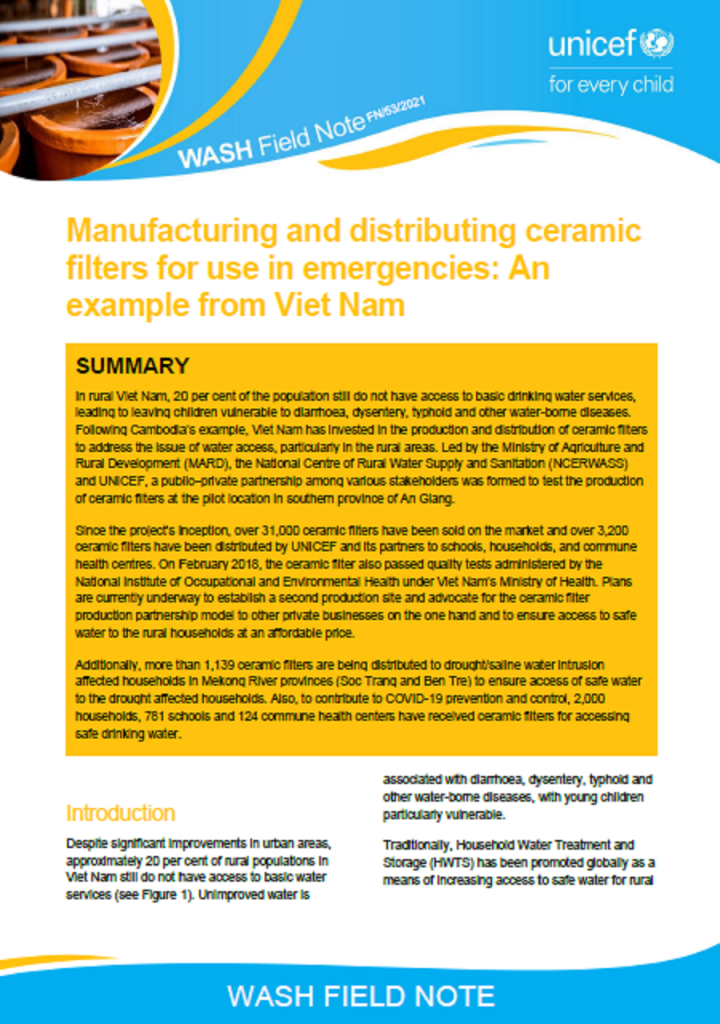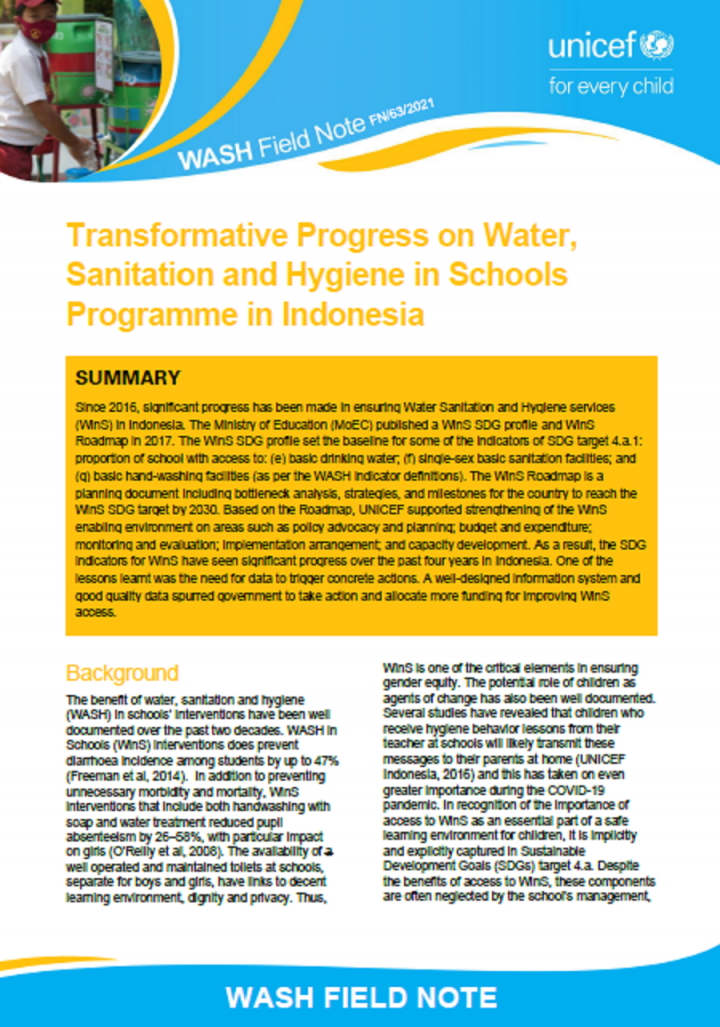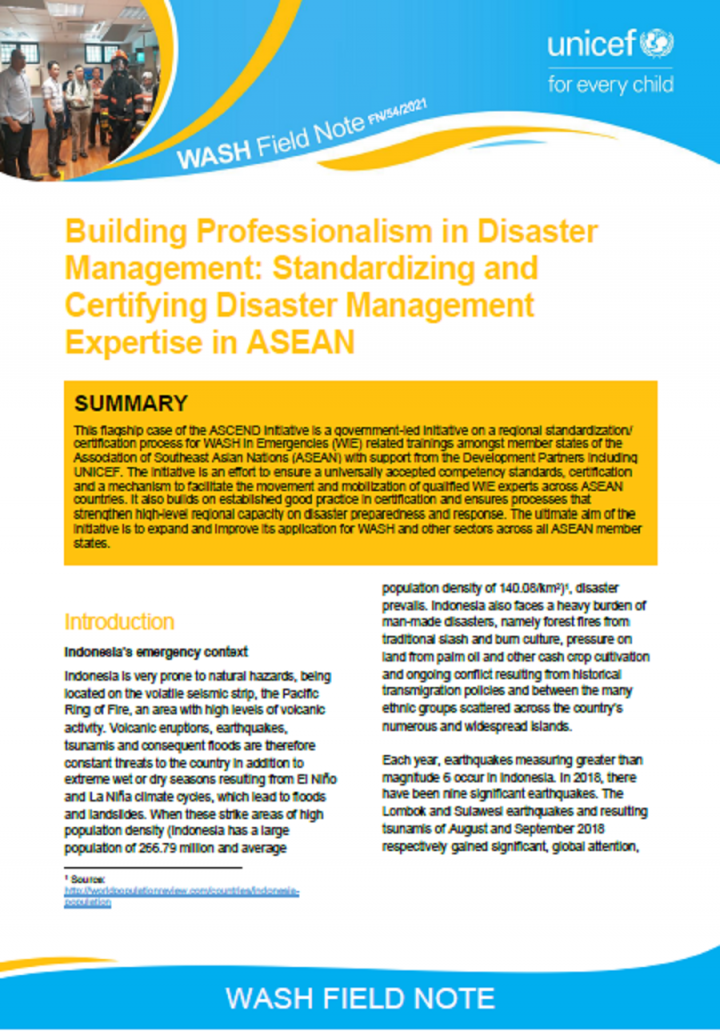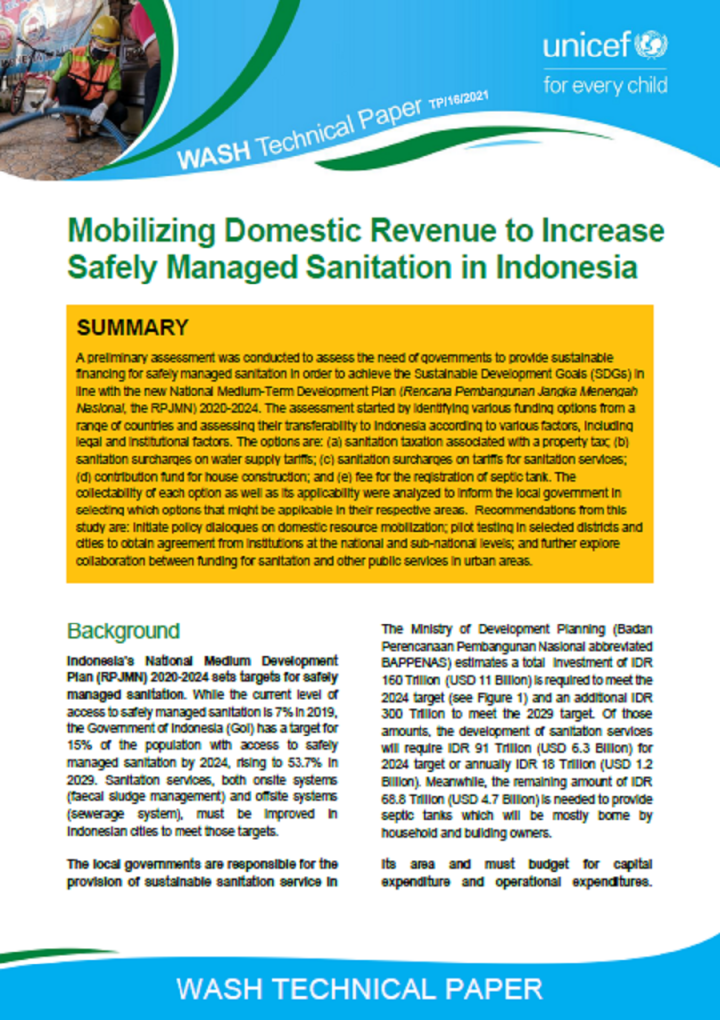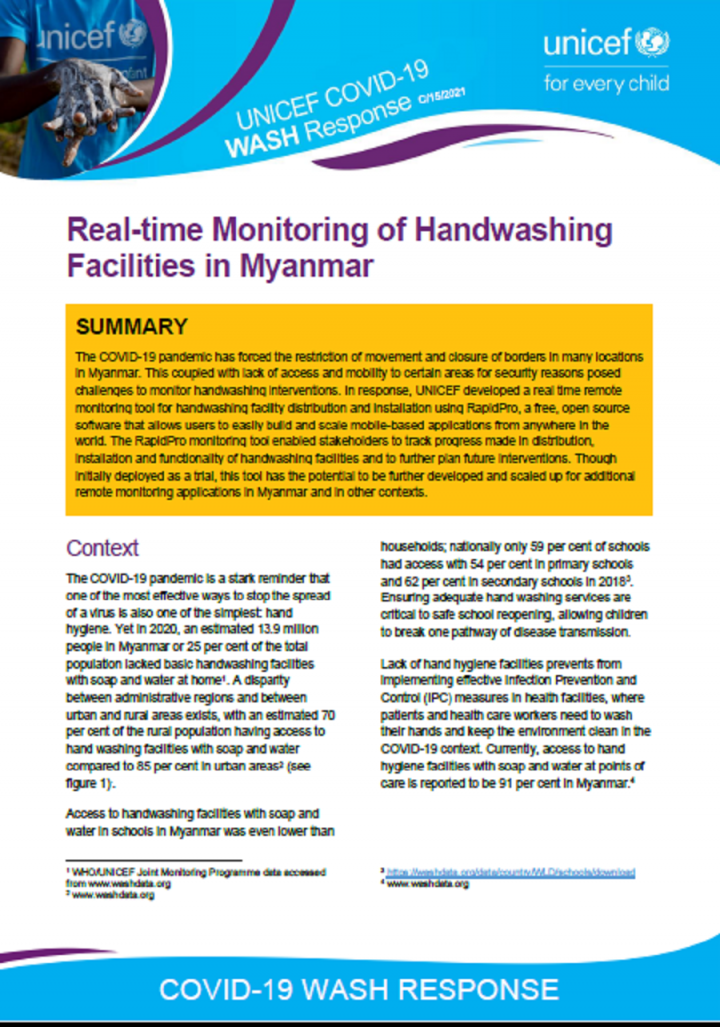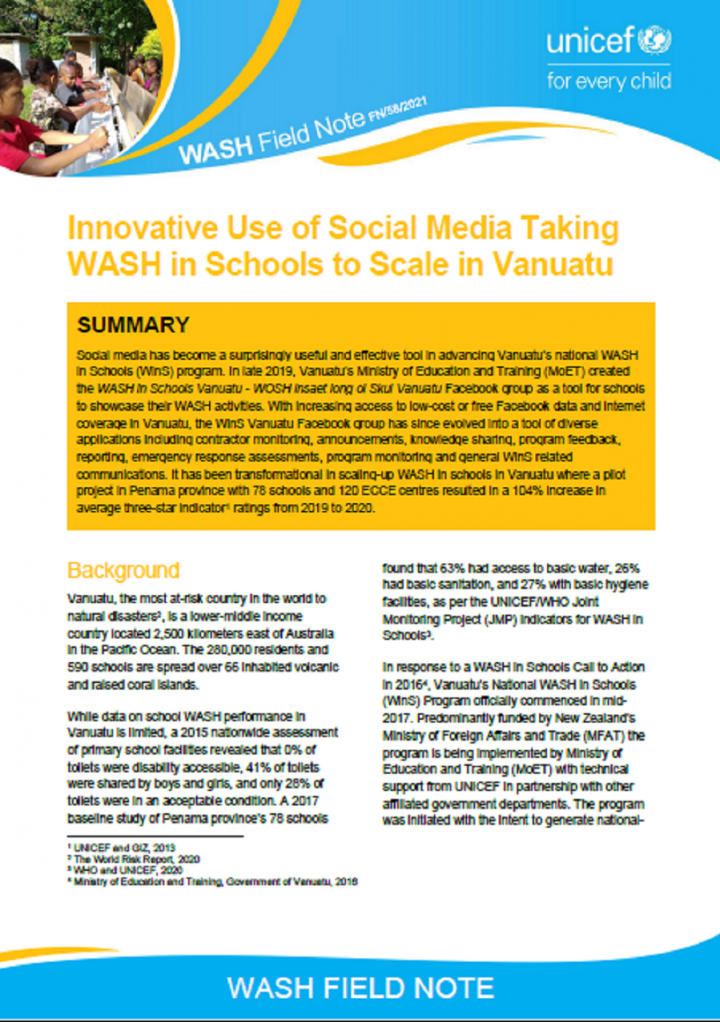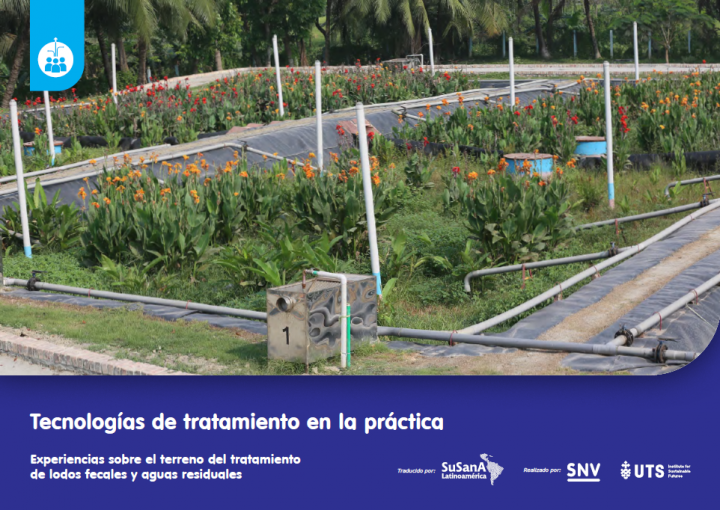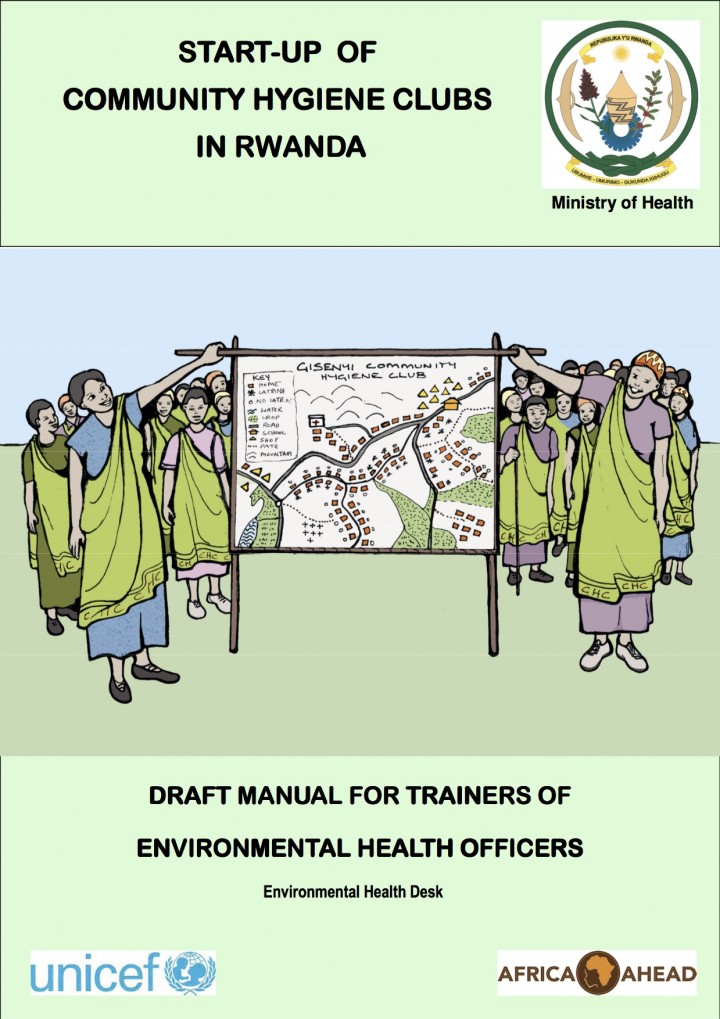Searching for information on Sanitation Workers?
The Sanitation Workers Knowledge + Learning Hub is the best source for all current news, trends, articles and updates on sanitation workers rights around the world.
Faecal sludge management (FSM) covers the whole chain from containment, emptying and collection, transportation, treatment and disposal and end-use. Faecal sludge management (FSM), nonetheless, is applied to the context of onsite sanitation (OSS) systems only. This is particularly important for Zambia where in general close to 85 percent of the population relies on on-site sanitation system. CSO …
It is known that eradicating open defecation is only half the battle. For improving sanitation, faecal sludge and wastewater also needs to be safely managed. It is in this context that Government of India, Ministry of Housing and Urban Affairs (MoHUA) issued a National Faecal Sludge and Septage Management (FSSM) Policy3 . It recommends regular desludging of septic tanks through a systematic …
Availability of adequate sanitation services is one of the most significant development challenges experienced in the rapidly growing Kampala city. Over 90% of Kampala’s population relies on on-site sanitation which include flush (pour and cistern) toilets, Urine Diversion Dehydrating Toilets (UDDTs), Ventilated Improved Pit Latrines (VIPs) and traditional pit latrines.
The toilets are put up …
Schools are the heart of a community where children spend half of their day. They play a unique role in creating healthy learning environments. The social norms and habits developed in children will stay with them all their lives. Thus, by providing a healthy learning environment and promoting healthy practices, schools act as an equalizer for all children from varied economic backgrounds.
The …
In 2016, the Ministry of Education, Youth and Sport in Cambodia published the ”Guidelines for Minimum Requirements for WASH in Schools“. The guidelines are designed for stepwise improvements of WASH (Water, Sanitation and Hygiene) infrastructure and hygiene behavior in schools to reach the national goal of water and sanitation access for all in 2025.
This group washing facility catalogue …
This guide will provide insights on preconditions and principles for developing a national WinS MOOC based on the Philippines’ WinS MOOC experience, practical examples on structure, content and course outline of a typical WinS MOOC, and recommendations for adapting these processes in your institution’s context.
Images are a big part of communication, today more so than ever. Not only do we consume more visual media than ever through social media and streaming sites. More and more we use images to communicate with each other, e.g. gifs and memes. Yet the way we read and understand an image is influenced by several factors including historical and cultural context or background, age as well as race and …
WASHaLOT 3.0 is a versatile design of a group handwashing facility that accommodates many users at the same time and a water-saving facility with automatically closing individual water outlets. To support the adaption of the WASHaLOT 3.0, documents are made available to the public to guide in the production process of the WASHaLOT 3.0.
A very centralized Department of Education (DepED) in the Philippines adopted a decentralized approach by giving all the responsibilities to school principals to adjust the school’s needs and implement a phased approach of the WASH in Schools programme. Since Typhoon Haiyan’s emergency response, addressing water, sanitation and hygiene (WASH) needs has become a priority for the Education …
Since its foundation in 2007, SuSanA has grown to become a very large, and at times influential, network of organisations and individuals on sustainable sanitation. Its growth has contributed to challenges related to its model of structure, governance and operations, and the Bill and Melinda Gates Foundation commissioned a consultancy in 2018 to consider how SuSanA could re-shape for a new era in …
O funcionamento das estações de lodo fecal e de tratamento de águas residuais raramente é
desenvolvido como descrito em manual ou livro didático. No entanto, pouco foi documentado
sobre os desafios práticos da vida real dos envolvidos. Essa lacuna limita a capacidade dos
planejadores e tomadores de decisão de tomar as decisões de investimento certas. Essa
coleção de estudos de caso …
Access to adequate hand hygiene facilities (HHFs), including a reliable supply of water and soap, is
paramount to ensure that daily hand hygiene can be practiced in public places. With COVID-19, public
spaces have become an important location for the water, sanitation, and hygiene (WASH) sector to
engage in when it comes to key moments for hand hygiene. However, the nature of public places …
The development of WASH in Schools (WinS) in Indonesia has been progressing significantly in recent years. The availability of more and better quantitative and qualitative data on WinS has raised the interest of decision makers, both at national and local level, to improve school children’s access to water, sanitation and hygiene and improve the overall school environment for children. Some key …
Realizing its commitment to providing universal access to sanitation, the Government of Indonesia aims to shift from open defecation free into safely managed sanitation as the national plan for sanitation is targeting to provide 15% of the population with access to safely managed sanitation. Based on the Statistics Bureau, in 2019, there are 77.44% households that have access to sanitation in …
In rural Viet Nam, 20 per cent of the population still do not have access to basic drinking water services, leading to leaving children vulnerable to diarrhoea, dysentery, typhoid and other water-borne diseases. Following Cambodia’s example, Viet Nam has invested in the production and distribution of ceramic filters to address the issue of water access, particularly in the rural areas. Led by …
Since 2016, significant progress has been made in ensuring Water Sanitation and Hygiene services (WinS) in Indonesia. The Ministry of Education (MoEC) published a WinS SDG profile and WinS Roadmap in 2017. The WinS SDG profile set the baseline for some of the indicators of SDG target 4.a.1: proportion of school with access to: (e) basic drinking water; (f) single-sex basic sanitation facilities; …
This flagship case of the ASCEND initiative is a government-led initiative on a regional standardization/ certification process for WASH in Emergencies (WiE) related trainings amongst member states of the Association of Southeast Asian Nations (ASEAN) with support from the Development Partners including UNICEF. The initiative is an effort to ensure a universally accepted competency standards, …
On 7 April 2020, Tropical Cyclone (TC) Harold caused major infrastructure damage to 43% (128/298) of
schools and 47% (164/349) of ECCE (early childhood care and education) centres in Vanuatu’s Sanma,
Malampa and Penama provinces1. Pentecost, in Penama province, was among the hardest hit with all of
the 23 schools in central and southern zones reported as majorly damaged. Along with efforts …
A preliminary assessment was conducted to assess the need of governments to provide sustainable financing for safely managed sanitation in order to achieve the Sustainable Development Goals (SDGs) in line with the new National Medium-Term Development Plan (Rencana Pembangunan Jangka Menengah Nasional, the RPJMN) 2020-2024. The assessment started by identifying various funding options from a range …
Through Community Based Total Sanitation (known in Bahasa as Sanitasi Total Berbasis Masyaralat or STBM), many rural communities in Aceh province in Indonesia have been supported to eliminate Open Defecation (OD). However, achieving Open Defecation Free (ODF) still remains a challenge for many residents. This technical paper presents the results of a study on open defecation practices in rural …
The COVID-19 pandemic has forced the restriction of movement and closure of borders in many locations in Myanmar. This coupled with lack of access and mobility to certain areas for security reasons posed challenges to monitor handwashing interventions. In response, UNICEF developed a real time remote monitoring tool for handwashing facility distribution and installation using RapidPro, a free, …
Social media has become a surprisingly useful and effective tool in advancing Vanuatu’s national WASH in Schools (WinS) program. In late 2019, Vanuatu’s Ministry of Education and Training (MoET) created the WASH in Schools Vanuatu - WOSH insaet long ol Skul Vanuatu Facebook group as a tool for schools to showcase their WASH activities. With increasing access to low-cost or free Facebook data …
La operación de las plantas de tratamiento de lodos fecales y aguas residuales rara vez
se desarrolla como se describe en un manual o libro de texto. Sin embargo, poco se ha
documentado sobre los desafíos prácticos de la vida real involucrados. Esta brecha limita
la capacidad de los planificadores y tomadores de decisiones para tomar las decisiones de
inversión correctas. Esta …
The Government of Rwanda, through the Ministry of Health, launched the Community-Based Environmental Health Promotion Programme (CBEHPP) on 17th December 2009. The purpose of this programme is to significantly reduce, by 2012, the debilitating national disease burden that currently exists and, in so doing, will contribute significantly to poverty reduction outcomes. CBEHPP will strengthen the …

